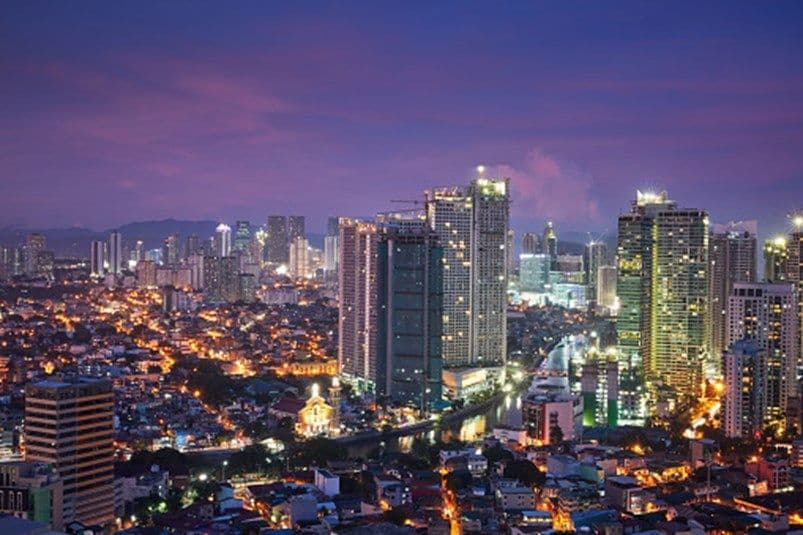The Philippines, A Flourishing Business Destination This 2020
By Marella Gimenez | 01/17/2020

The Philippines is seen to be starting the year off strong this 2020 with stable GDP projections, new government programs for the youth, and government interest in making SMEs more globally competitive. The projected growth of the country also opens new opportunities to further the development of emerging sectors in business, such as financial technology. These are all steps for the country to be able to seamlessly integrate and compete in an international business market.
GDP Growth for 2020
The Philippines is predicted to outperform its regional and global neighbors in the next two years due to strong private consumption, monetary policy easing, and robust rebound capital inflow. Investment experts from British banking giant, HSBC, believes that the Philippines’ gross domestic product (GDP) is to grow by 6.4%, surpassing the projected average growth of emerging Asian markets (5.1%). The fastest growing countries are set to be in Africa, South and Southeast Asia, with the Philippines being among them due to its demographic ‘sweet spot’ and educated workforce. As the population of more developed Asian economies (i.e. Japan) start to age, the Philippines in comparison is preparing for the entry of millions of young Filipinos into the workforce.
HSBC also foresees investment growth to bounce back with a 10.7% increase, a huge improvement from the 2.3% last year because of the delayed legislation of the national budget, which constrained public spending. The Bangko Sentral ng Pilipinas (BSP) is also among the few Asian monetary institutions that will continue its ongoing monetary easing for the year. All these factors bode well for the Philippines in sustaining their rapid economic growth, along with reducing natural disaster exposure, proficient English skills, and trade openness and economic growth. Creating a good atmosphere and reducing risks for businesses to thrive also attract more foreign businesses to invest in the country and outsource their own offshore team.
Development of the Fintech Sector
Aside from improved GDP projections this year, the Philippines also boosted their Financial Technology ratings in the Global Fintech Index 2020. The country achieved a score of 8.831 in the yearly index, improving its standing to the 46th place and climbing up 8 notches. Furthermore, Manila is listed as one of the top 3 Southeast Asian cities in being the most viable for Fintech business and transactions across the Asia-Pacific region. The Philippine capital follows closely behind Singapore city (1st) and Jakarta in the list.
There are also government partnerships in place, particularly with the UNICEF Office of Innovation, to pilot a global Fintech program for the country’s communities. “Fintech for Impact” invests in Fintech startups that build innovative solutions to help the financially disadvantaged and those in lower socio-economic classes. This also helps the government to further invest in the youth and the country's future workforce, by giving them the tools to compete in a global job market.
The Philippines is currently eyed as a fast-growing Fintech destination, with the country offering various digital banking services that make it easier for people to keep track of their finances. It is therefore able to provide more services that help local and foreign businesses succeed through this emerging sector that uses technology to improve the ease of doing financial activities.
Making more Enterprises Globally Competitive
The business process outsourcing (BPO) sector on the other hand is already a proven economic powerhouse, cementing its top position in the global arena. Comparing it to other neighboring Asian countries, international clients continue to still prefer Filipino talent because of their highly qualified and vast talent pool. Aside from their excellent grasp of the English language, foreigners, most especially Americans, resonate well with the close cultural environment. There is also the added advantage of knowing it is one of the countries that have been doing this the longest. From this, sprouted other private companies offering staff leasing and outsourcing services, to provide a wider selection for any foreign business that might think of coming into the country. This allows these businesses to run a smoother operation on areas that may not be their strongest suit and to efficiently make use of their operational costs.
Therefore, local entrepreneurs and other MSMEs are slowly becoming globally competitive as well, because of the presence of numerous companies that cater and provide to business needs (i.e. banking, staff leasing). The challenge now for the Philippines’ business climate is how to keep all these businesses globally competitive, no matter the size. With new government partnerships and the further development of emerging business sectors, it better equips the future workforce with what they need to compete in a larger global scale. This year’s GDP growth also give better conditions to companies and aspiring professionals, enabling them to succeed and bring in more business and capital.
Through the collaboration of government policies, advanced digital transformation, the current workforce, and the private sector, the Filipino people are more encouraged to pursue their own business paths which helps the country’s business landscape flourish as a whole.